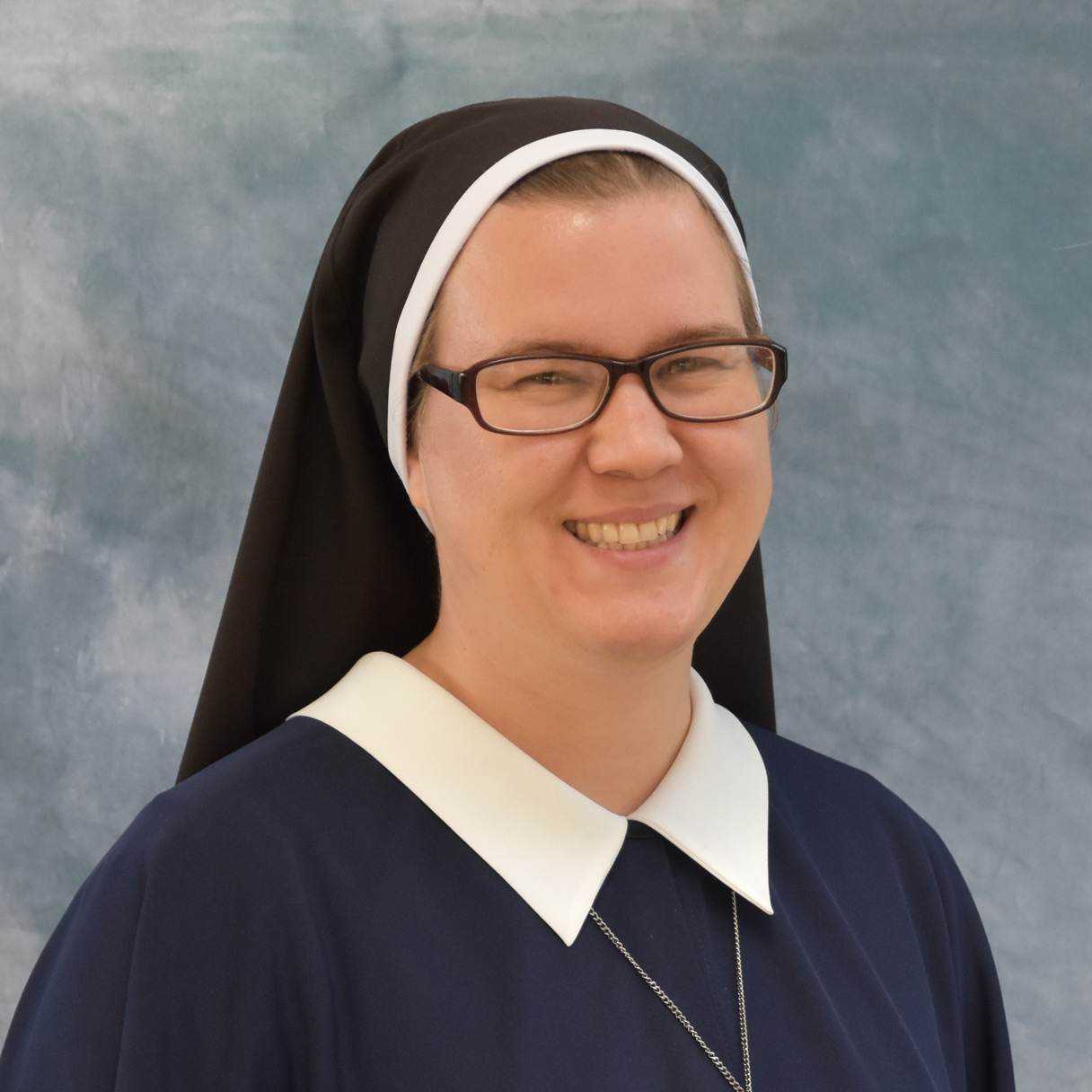Eucharist
The liturgical life of the Church revolves around the sacraments, with the Eucharist at the center (National Directory for Catechesis, #35). At Mass, we are fed by the Word and nourished by the Body and Blood of Christ. We believe that the Risen Jesus is truly and substantially present in the Eucharist. The Eucharist is not a sign or symbol of Jesus; rather we receive Jesus himself in and through the Eucharistic species. The priest, through the power of his ordination and the action of the Holy Spirit, transforms the bread and wine into the Body and Blood of Jesus. This is call transubstantiation.
Mass Times
| Sunday | 8:30 AM St. Mary 10:00 AM St. James 11:30 AM Blessed Sacrament |
| Monday | 12:05 PM St. Mary |
| Tuesday | 8:30 AM Blessed Sacrament |
| Wednesday | 8:30 AM St. James |
| Thursday | 6:00 PM Blessed Sacrament |
| Friday | 12:05 PM St. Mary |
| Saturday | 8:30 AM* St. James 4:00 PM St. Mary 4:00 PM Blessed Sacrament |

Sr. Alina Marie
Director of Religious Education
sisteramarie@warrencatholic.org330-372-2215 | ext. 109
For more information, please call the Religious Education Office at (330)372-2215.
Certificate Requests
Those baptized in Warren, Ohio, can request certificates for all Sacraments received.
The New Covenant
I am the living bread that came down from heaven; whoever eats this bread will live forever;…Whoever eats my flesh and drinks my blood has eternal life and…remains in me and I in him. (John 6:51, 54, 56)
In the gospels, we read that the Eucharist was instituted at the Last Supper. This is the fulfillment of the covenants in the Hebrew Scriptures. In the Last Supper narratives, Jesus took, broke and gave bread and wine to his disciples. In the blessing of the cup of wine, Jesus calls it “the blood of the covenant” (Matthew and Mark) and the “new covenant in my blood” (Luke).
This reminds us of the blood ritual with which the covenant was ratified at Sinai (Ex 24) — the sprinkled the blood of sacrificed animals united God and Israel in one relationship, so now the shed blood of Jesus on the cross is the bond of union between new covenant partners — God the Father, Jesus and the Christian Church. Through Jesus’ sacrifice, all the baptized are in a relationship with God.
The Catechism teaches that all Catholics who have received their First Holy Communion are welcome to receive Eucharist at Mass unless sin a state of mortal sin. Anyone who desires to receive Christ in Eucharistic communion must be in the state of grace. Anyone aware of having sinned mortally must not receive communion without having received absolution in the sacrament of penance. (CCC 1415)—The Church warmly recommends that the faithful receive Holy Communion when they participate in the celebration of the Eucharist; she obliges them to do so at least once a year. (CCC 1417)
Understanding the Mass
The central act of worship in the Catholic Church is the Mass. It is in the liturgy that the saving death and resurrection of Jesus once for all is made present again in all its fullness and promise – and we are privileged to share in His Body and Blood, fulfilling his command as we proclaim his death and resurrection until He comes again. It is in the liturgy that our communal prayers unite us into the Body of Christ. It is in the liturgy that we most fully live out our Christian faith.